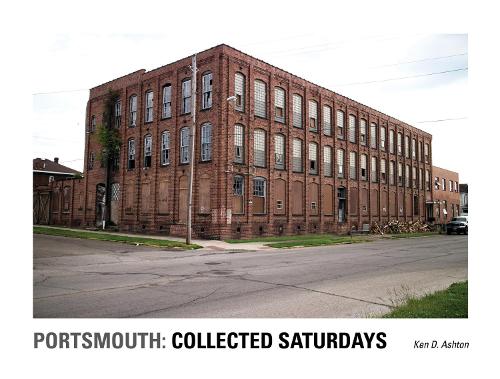
Portsmouth: Collected Saturdays
(Hardback)
Publishing Details
Portsmouth: Collected Saturdays
By (Author) Ken D. Ashton
Introduction by Paul Roth
Contributions by Kriston Capps
Daylight Books
Daylight Books
16th May 2017
United States
Classifications
General
Non Fiction
Photography and photographs
Places and peoples: general and pictorial works
Nature in the arts
Human made objects depicted in the arts
Architecture
Photographs: collections
Physical Properties
Hardback
112
Width 254mm, Height 190mm
Description
Portsmouth: Collected Saturdays is a volume of images that show the hardship of deindustrialization, floods, and crime in Portsmouth, Ohio. Ken D. Ashton's photographs show the other side of Appalachia with its fair share of unsuccessful socio-economic undertakings. Through the acute scope of Portsmouth, Ohio, Ashton portrays the macro effect of deindustrialization on small-town America. Ashton investigates the urban landscape, finding signs of depopulation through abandoned lots, homes, and restaurants. He explores how the influence of urban landscape affects our thoughts, actions, and imagination.
Ken D. Ashton's photographic work explores urban neighborhoods that experience transition as well as communities that have remained intact. For over fifteen years, Ashton has worked on Megalopolis, a photographic encyclopedia of communities from Washington, DC to Boston, MA.
Author Bio
Ken D. Ashton resides in Washington, DC, and has spent the past 25 photographing neighborhoods throughout the world, with DC as a center point. The largest project being an encycopedic undertaking of photographing communities in the Northeastern corridor of the US, from DC to Boston, entitled Megalopolis. Ashton's work has been featured in exhibitions in many venues, including the Corcoran Gallery of Art, Washington Project for the Arts, North Carolina Museum of Art, Ludwig Forum, Aachen Germany. Ashton's photographic work is primarily of urban neighborhoods. Drawn to areas both in transition and communities that have remained consistently intact. Showing the urban landscape and its' influence on our thoughts, actions, and imagination. Ashton's new work documents the small River town of Portsmouth, Ohio. It is the other side of Appalachia with its fair share of sad history. Paul Roth is Director of the Ryerson Image Centre in Toronto, Ontario. Previously, he served as Senior Curator of Photography and Media Arts at the Corcoran Gallery of Art in Washington DC; as Executive Director of The Richard Avedon Foundation in New York; and as archivist of the Robert Frank Collection at the National Gallery of Art in Washington. Roth has helped realize numerous exhibitions and film series, including Scotiabank Photography Award 2014: Mark Ruwedel (2015), Edward Burtynsky: Oil (2009), Richard Avedon: Portraits of Power (2008), Sally Mann: What Remains (2004), and IDreaming: The Visionary Cinema of Stan Brakhage (National Gallery of Art, 2002). He is author and co-editor of Gordon Parks: Collected Works (Steidl, 2012). Kriston Capps is a critic and reporter. He is a staff writer for CityLab, the urbanism site for The Atlantic, where he writes about housing, architecture, urban design, and other topics. He is a former senior editor for Architect magazine. His writing about art and architecture has been published by Artforum, New York, The Washington Post, Slate, Art in America, and many other publications. Capps is also a contributing editor for the Washington City Paper and writes weekly art reviews and art news for the paper. Capps was the winner of the inaugural 2016 Sarah Booth Conroy Prize for Architectural Journalism and Criticism. He has given talks at the Phillips Collection, the Hirshhorn Museum and Sculpture Garden. As an adjunct, he has taught seminars at George Washington University, the University of Maryland, and Maryland Institute College of Art. Capps has a bachelor's degree from the University of Texas at Austin.
